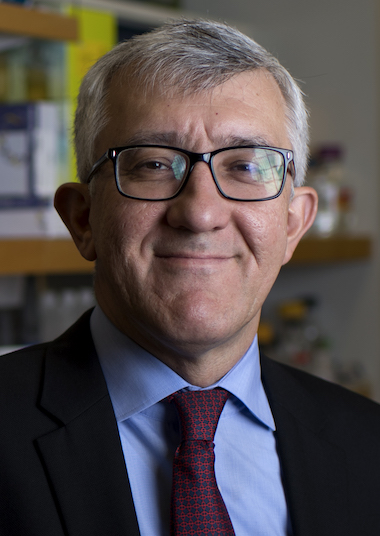Antibiotic could eliminate gum disease-causing pathogen without harming healthy bacteria
Fusobacterium nucleatum has been linked to cancer, preterm birth, Alzheimer’s


ADA Forsyth Institute scientists have discovered that narrow-spectrum antibiotic FP-100 can eradicate Fusobacterium nucleatum — a key pathogen that triggers the onset of periodontitis — without harming the oral or gut microbiomes.
“Often, antibiotics treating that disease will also kill all the bacteria that aid in preventing overpopulation of pathogens,” said Alpdogan Kantarci, D.D.S., Ph.D., a senior scientist at ADA Forsyth who led the study. “With the increase of antibiotic-resistant superbugs, being able to kill a dangerous pathogen with a narrow-spectrum antimicrobial drug candidate represents a significant paradigm shift in antibiotic development. Eliminating that key pathogen is a very important strategy to control the disease.”
Current treatments for periodontal disease focus on slowing its progression, but there is no cure. The study, funded by Flightpath Biosciences Inc. and published in the Journal of Oral Microbiology, found FP-100, or hygromycin A, was effective at eradicating Fusobacterium nucleatum both in vitro and in a mouse model. ADA Forsyth and Flightpath Biosciences have engaged in a collaboration agreement to study therapies to address periodontal disease.
“This type of black and white data almost never happens,” Dr. Kantarci said. "The results were so clear. With FP-100, we can eliminate Fusobacterium nucleatum from the oral cavity, reverse tissue destruction and prevent disease progression without harming the beneficial microbiome."
The potential for FP-100 extends beyond the mouth. Fusobacterium nucleatum has been linked to health issues such as colorectal cancer, preterm birth and Alzheimer’s disease. The antibiotic was rediscovered by researchers looking for treatments against Borrelia burgdorferi, the bacterium that causes Lyme disease.
“Fusobacterium is an insidious pathogen,” Dr. Kantarci said. “Studies show it can travel from the oral cavity to other places, where it colonizes and causes disease. We recently published a study showing that Fusobacterium can enter human cells like a Trojan horse and travel undetected to other parts of the body where it colonizes and causes disease. Eliminating the bacteria early in the oral cavity is also systemic prevention.”
ADA Forsyth and Flightpath Biosciences have filed a joint patent application for FP-100. They plan to further explore the antibiotic's potential in clinical trials and expand its application to other conditions caused by Fusobacterium nucleatum. FP-100 is currently in a phase I clinical study to determine its safety and tolerability in human participants.
For more research from ADA Forsyth, visit forsyth.org.



